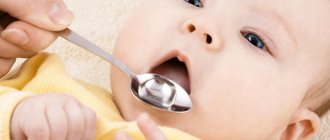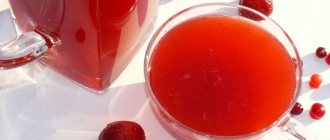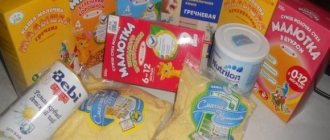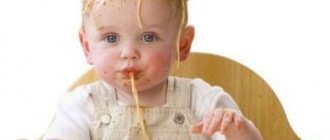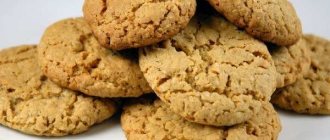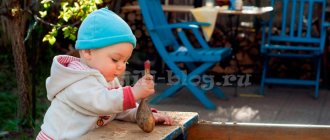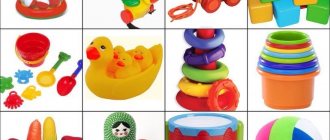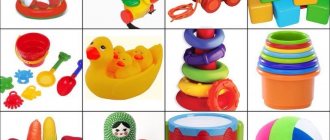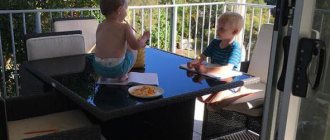Updated: 04/20/2020 12:24:43
*Review of the best according to the editors of expertology.ru. About the selection criteria. This material is subjective in nature, does not constitute advertising and does not serve as a purchase guide. Before purchasing, consultation with a specialist is required.
Neuroses in children and adolescents are a fairly common type of neuropsychic pathology. They are divided into various types. The simplest classification includes:
- attacks of fear;
- nervous tics;
- depressive neuroses;
- hysterical neuroses;
- neurasthenia;
- hypochondria;
- neurotic logoneurosis;
- neurotic sleep disorders;
- eating disorder;
- neurotic enuresis/encopresis.
Very often, systemic neuroses go away on their own, especially if children and parents follow the useful recommendations of specialists.
But in some cases, they cannot do without the use of a number of medications, including sedatives. The latter have a mild relaxing effect. They are able to normalize sleep, reduce anxiety and stress. It is important to select sedatives according to the child’s age. In this review, we have collected the best sedatives for children under 3 years old, from 4 to 11 years old and over 12 years old.
| Nomination | place | Name of product | price |
| The best sedatives for children under 3 years old | 1 | Magne B6 | 481 ₽ |
| 2 | Planetary Herbals Soothing Herbal Syrup for Children | 1 164 ₽ | |
| 3 | Dormikind | 511 ₽ | |
| 4 | Glycine | 37 ₽ | |
| 5 | Valerian rhizome with roots filter bags | 65 ₽ | |
| The best sedatives for children from 4 to 11 years old | 1 | Tenoten for children | 277 ₽ |
| 2 | Nervochel | 513 ₽ | |
| 3 | NatraBio Insomnia remedy | 587 ₽ | |
| 4 | Baby Formula Mishki chewing lozenges Calmness | 273 ₽ | |
| 5 | Notta drops | 345 ₽ | |
| 6 | Bye bye drops | 132 ₽ | |
| The best sedatives for children over 12 years old | 1 | Novo-Passit | 209 ₽ |
| 2 | Persen | 272 ₽ | |
| 3 | MediNatura BHI sedative | 1 316 ₽ | |
| 4 | Valerianahel | 753 ₽ |
Rating of sedatives for children
Sedatives can be medicinal, homeopathic or folk remedies; in any case, you need to consult a neurologist to determine the diagnosis. To narrow down the search, the VyborExperta project team collected the best proposals from each group, paying attention to the following criteria:
- Type of medicine;
- Composition, origin of components;
- Principle of action, therapeutic properties of the formula;
- Speed of action, how quickly relief occurs;
- Release form, solid or liquid;
- From what age is admission allowed?
- Indications for what symptoms it is used;
- Features of therapy, dosage regimen, dosage, course duration;
- Restrictions, contraindications;
- Safety, likelihood of side effects.
We have selected for you drugs with the best price-effectiveness ratio. These are 10 nominees of domestic and imported production. Reviews from doctors and parents identified the strengths and weaknesses of each product.
Classification of sedatives for children
Drugs that affect the human nervous system are usually divided into groups:
| Type of drug | Characteristics of the drug |
| Medications | Prescribed to children with diseases of the nervous system |
| Homeopathic sedatives | Highly diluted drugs that cause disease symptoms in healthy people similar to those of the patient's disease |
| Traditional medicine | Only natural ingredients are used, therefore safe for children |
If you start using medications without consulting a neurologist, you should opt only for herbal remedies, or in extreme cases, homeopathic ones. Medications have side effects, so consultation with a neurologist before taking them is mandatory.
The best calming pills for children
The most popular form of sedative medications is tablets. Children under 2-3 years old cannot swallow them on their own, so young age is most often a contraindication. We have selected 4 drugs for you with high customer ratings and doctor recommendations. All of them are designed to combat anxiety, psycho-emotional stress, poor sleep and hyperactive behavior.
Tenoten for children
A Russian drug in tablet form, approved for children over 3 years of age. It is based on antibodies to the brain-specific protein S-100, which have calming and anti-anxiety properties. After oral administration, the tablets stop attacks of irritability and help to cope with psycho-emotional stress more easily.
A nootropic effect is also noted; it consists of stimulating brain activity and increasing memory concentration. There are many indications for use - hyperactivity, pathologies of the nervous system, attention deficit disorder, increased mobility.
The only contraindication is individual intolerance, against which allergic reactions may occur.
Advantages:
- Fast action;
- Convenient method of use;
- Sweet taste;
- Elimination of excitability;
- Nootropic effect;
- Establishing sleep.
Flaws:
- Apathy, lethargy in some children;
- Possible allergies.
Directions for use: dissolve 1-2 tablets up to 3 times a day. Maximum effectiveness is possible with a course of treatment lasting from 1 to 3 months. In rare cases, a side effect occurs - depression of the nervous system.
Glycine
A sedative from the Russian pharmaceutical company Biotics, which is based on an amino acid. It acts as an inhibitory neurotransmitter in the brain, reducing psycho-emotional stress. Glycine also improves metabolism and increases the protective forces of the nervous system.
As in the previous case, a nootropic effect is noted here; such nourishment of the brain stimulates its activity and performance.
Most often, doctors prescribe Glycine to children and adolescents with deviant forms of behavior and difficulties in matters of social adaptation.
Age limit: over 3 years old. If treatment is necessary for the baby, the pills are taken by the breastfeeding mother. The drug improves metabolism and increases the protective forces of the nervous system.
Advantages:
- Safety;
- Nootropic effect;
- Convenient method of administration;
- Improved sleep;
- Normalization of mood;
- Inexpensive.
Flaws:
- Long course;
- Possible allergies.
The treatment regimen largely depends on age and diagnosis. Usually this is 2-3 tablets 2-3 times a day for at least 2-4 weeks. For younger children, Glycine is allowed, but under the supervision of a doctor, the dosage is halved.
Magne B6
French vitamin preparation to maintain the nervous system in a state of balance. The main components are magnesium lactate, magnesium pidolate, the deficiency of which leads to sleep disorders, impaired concentration, irritability, and anxiety. The third substance is pyridoxine hydrochloride, which promotes the absorption of magnesium by cells.
A prerequisite for therapy with this composition is an analysis to determine the level of vitamin B6 and magnesium in the blood. If these are ampoules with a liquid solution, they can be given to a child from 1 year old, if tablets - from 6 years old.
Contraindications: phenylketonuria, severe renal failure, individual intolerance to the components.
Advantages:
- Valuable composition;
- Rapid replenishment of important CNS resources;
- Several release forms;
- Quick calming effect;
- Improved appetite;
- Normalization of sleep.
Flaws:
- Contraindications;
- Possibility of skin rashes.
The average daily dosage is 1-6 tablets, depending on how you feel, the diagnosis and the results of a blood test. Self-medication with this drug is unacceptable, as there are strict restrictions on its use and risks of developing side effects.
Dormikind
Homeopathic hypnotic remedy from a German manufacturer for children from birth to 6 years. The main purpose is the treatment of sleep disorders and restless behavior.
The multicomponent formula includes magnesium carbonate, which has calming and anticonvulsant properties, zinc valerianicum, which has a beneficial effect on the functioning of the nervous system, spine, heart, as well as the herb fluffy slipper with a sedative effect.
The natural base promises a soft, cumulative effect. After completing the course, the quality of sleep is normalized, the child sleeps all night without waking up. The release form is lozenges; they can also be mixed with water when crushed.
One jar contains 150 pieces, this is enough for several courses of therapy. It is prohibited to take it only if you have an individual intolerance to the ingredients.
Advantages:
- From the first days of life;
- Normalization of sleep;
- Natural ingredients;
- Reduced excitability;
- Neutral taste;
- Big jar.
Flaws:
- Lactose;
- Frequent appointments.
Daily dosage – 4 tablets. If your baby cannot absorb the granules, crush them and mix them with a teaspoon of water. Please note that the composition includes lactose, so Dormikind is contraindicated if you are intolerant to this component.
Sedatives for infants: possible or not
The child is often capricious, does not fall asleep for a long time, sleeps little and cries at night - common examples from the life of infants. Do young children need sedation in these situations? We will learn about suitable medications, when to take them and whether it is safe if the child is under one year old, in a conversation with a neonatologist from Spain, Valeria Maksimovna Shchelkunova.
— Valeria Maksimovna, some parents keep sedatives for children in their home medicine cabinet. Should these products always be on hand?
— Children's anxiety very often causes anxiety among parents. Especially if it is the first baby in the family and the parents do not understand the reason for his crying or poor sleep. At their own discretion or at the prompting of relatives, they purchase various drugs. But before you give any medicine to a baby, you still need to understand the true reason for his tears and poor health.
Common Causes of Childhood Anxiety
| Physiological reasons - found in most children. And parents can eliminate them on their own:
| Pathological causes - directly related to the child’s well-being:
|
Anything that causes physical discomfort and pain to a child can lead to changes in his behavior.
— In what cases should a child be shown to a neurologist?
— If a child is unusually fussy, sleeps and eats poorly, cries often, but there are no obvious reasons for concern, you need to see a doctor and not diagnose yourself. I do not recommend immediately running to a neurologist, since in most situations a pediatrician can solve the problem.
— Is it safe to give sedatives to a small child?
— Each specific sedative has a different effect on the child’s body. Herbal tinctures have minimal side effects. Serious neurological drugs have powerful sedation, so they are taken strictly as prescribed and under the supervision of a doctor. Taking such a drug without indications and in the wrong dosage can provoke serious adverse reactions.
Do not buy or give medications to your child on your own initiative. The doctor always weighs the likelihood of adverse reactions to the prescribed drug and the danger to the child if the drug is abandoned.
What sedatives can be given to children?
| Pharmacological drugs for children | They are prescribed only by a doctor and require strict dosage control. Frequent indications: birth injuries, damage to the nervous system, serious neurological abnormalities. |
| Soothing teas for babies | All parents love calming herbs for children. But despite their widespread use, herbal remedies are not recommended due to problems with their dosing, lack of evidence base for their effectiveness, and possible allergic reactions. |
| Homeopathic sedatives for children | The clinical effectiveness of homeopathic remedies has not been confirmed and should be taken with extreme caution. At best, they will not have any effect, but allergic reactions, including anaphylactic shock, and other side effects may occur: agitation, apathy, headache, dizziness, vomiting, etc. |
— When prescribing pharmaceuticals, everything is individual; contraindications and indications for them are determined by the doctor. The instructions for almost all sedatives say: “Not recommended for children under one year old.” But if taking the drug affects the baby’s quality of life and the side effects are less dangerous than refusing treatment with it, then the doctor will write the child a prescription.
Features of sedatives for infants
Phenibut
There must be direct indications for taking the drug, and if you can do without it, then it is better to do so. | Glycine
In modern pediatric practice, the drug is not used in infants. It is not sold at all in Europe. |
— In the pharmacological group there are a number of drugs that are developed specifically for children. Other sedatives differ in dosage for children and adults. And each of them, even plant-based, requires medical advice.
Serious medicinal sedatives are prescribed only for medical reasons, such as:
- nervous system injuries;
- postpartum trauma;
- abnormal development of the nervous system;
- epileptic activity;
- surgical intervention;
- treatment of pain not associated with the nervous system;
- diseases of the nervous system.
— What should parents do if their children hardly sleep?
— Sleep disturbance in most cases is caused by a failure in the child’s daily routine. Even in a newborn, despite feeding on demand, this regimen can be monitored. The physiological time for going to sleep at night in newborns and children up to 6 months is 19-20 hours, and at this time the child should already be asleep. Night sleep lasts almost 12 hours with getting up once every 3-4 hours for night feeding.
What really happens in families? A caring mother waits for dad from work in the evening. He needs to communicate with the child. The baby is glad that dad is back and forgets that he wanted to sleep. And as the time of his wakefulness extends, the nervous system comes to the conclusion that it is time to become more active. Stress hormones are released, and the baby remains cheerful and cheerful for some time. Parents think everything is fine. But then the nervous system is exhausted, the child suddenly becomes lethargic and tired. They are trying to put him to sleep, but the stress hormones do not give up: they still circulate in the blood and do not allow him to sleep. As a result, the baby wants to sleep, but cannot fall asleep until the stress hormones are destroyed. By this point, his nervous system is already severely exhausted, sleep will be restless, the child will not rest - and his new day will begin with a problem. This vicious circle needs to be broken. Therefore, before going to a neurologist and going through many diagnoses, you should start by assessing the regimen.
— How to calm a child before bedtime?
— From the point of view of evidence-based medicine, alternative remedies - homeopathy, herbal teas, mixtures, drops and baths with herbs - have no effect and often provoke allergic reactions. Herbs are not as harmless as many people think. And it’s better not to do anything without a doctor’s prescription.
A warm bath also does not always help to relax: some children behave calmly in the water, while for others, swimming becomes a way to cheer up; they want to splash, play, and dive. And it seems like you need to go to bed soon, but the child gets overexcited and then cannot fall asleep. Therefore, the time for bathing the baby is set individually by the parents.
A stroking massage can soothe your baby, especially if you make it part of your sleep routine. But a massage that is accompanied by intense gymnastics will not have calming properties.
What exactly needs to be done is to stop active games before bedtime, dim the lights, remove loud sounds and set the baby up for sleep by performing certain actions and an individual ritual.
— How will taking sedatives affect children's development?
— It is advisable to avoid unnecessary use of sedatives before and after one year. A sedative is prescribed for a proven neurological, acute or chronic disease, which qualitatively affects the baby’s condition.
A healthy child should be active. Sometimes all it takes is to calm him down a little - change the decor at home, review the routine and environment, remove external stimuli, eliminate family stress and postpartum depression. It's important to look at what can be changed. In 90% of cases, in a child who does not have an organic pathology and who at this moment is not experiencing periods of a leap in development or the appearance of baby teeth, anxiety goes away.
The prescription of a sedative drug occurs only under the supervision of a doctor: he selects the dosage and monitors tolerability, adjusting the dose for a therapeutic effect. He also discontinues the drug. Some sedatives cannot be stopped suddenly, but should be done gradually under medical supervision.
— Are the negative effects of medications on a child immediately noticeable?
— Adverse reactions are varied and depend on the drug. You need to pay attention to the description of undesirable effects in the instructions and possible problems mentioned by your doctor.
- In case of individual intolerance, the harm from drugs can be immediate and manifest itself as allergic urticaria, Quincke's edema.
- Drugs that have a cumulative effect are metabolized in the liver or kidneys, impair their function, or are poorly excreted.
- Some oral forms of medications have a negative effect on the gastrointestinal tract: the child may experience nausea, vomiting, and loose stools.
— Is it possible to give sleeping pills to a child under one year old?
— It is advisable not to give anything to a child under one year old unless there are direct medical indications. And if a child does not sleep well, it is better to reconsider his regime than to resort to sleeping pills, including those of herbal origin. Medicines can not only be ineffective, but also cause side effects: from dizziness, drowsiness, apathy to severe stupor, stupor and even coma, when severe depression of consciousness occurs. Therefore, taking any sleeping pill should be justified.
Thoughts about a child's sedative appear when parents do not understand why the child is overexcited and has trouble falling asleep in the absence of obvious changes in his health. Before opening the first aid kit, we need to think about what we ourselves are doing wrong. Except in very rare cases, you can do without sedatives. It is necessary to understand the baby’s sleep and wakefulness patterns, be calm yourself, go to an appointment with a pediatrician and consult with him.
general practitioner, neonatologist-reanimatologist, specialist in children's medical massage, blogger
Shchelkunova Valeria Maksimovna
*The ideal food for an infant is mother's milk. WHO recommends exclusive breastfeeding for the first 6 months. MAMAKO® supports this recommendation. Before introducing new foods into your baby’s diet, consult a specialist.
Was this article helpful? Share it on social networks!
The best soothing drops for children
The next rating category is sedatives for children in the form of drops. They are distinguished by their natural composition, effectiveness, ease of use, and the possibility of use from the first days of life. There is also a minimal list of contraindications and pleasant taste. The best, according to VyborExpert, were 2 nominees.
Bayu-Bai
Soothing drops for a child’s sleep based on a complex of herbs from the Russian company Merzan. This is motherwort extract - the best sedative plant, hawthorn with a general strengthening effect, mint, which gives clarity to thoughts and also relaxes muscle tone.
Oregano, or oregano as it is also called, relieves stress-related behavior. Another valuable supplement is peony extract, which has an anticonvulsant effect, which improves sleep.
The drops are intended for the age group of 3-7 years for the treatment of psycho-emotional instability, irritability, and sleep problems. The dietary supplement is well tolerated and does not cause addiction or withdrawal symptoms.
Noticeable changes in behavior and well-being are noted by the end of the first week of therapy. The consistency is transparent, slightly viscous, with a pleasant sweet and sour taste (composition includes citric and glutamic acid).
Advantages:
- Natural formula;
- Normalization of the physiological rhythm of sleep;
- Elimination of hyperactivity;
- Good tolerance;
- Not addictive;
- Soft safe action.
Flaws:
- Cumulative effect;
- Imperfect composition.
A single dose is 20 drops, they should be taken three times a day with meals, kept under the tongue for some time. The duration of the course is determined individually, most often it is 1-3 months. The drops help the child go to sleep faster and rest all night without waking up.
Notta
A natural alcohol-based product is offered by the Austrian brand Bittner. In terms of components, “Notta” refers to homeopathy, based on three plants and two mineral supplements.
Sowing oats helps cope with exhaustion of the body, coffee tree relieves stress, eases nervous tension, eliminates fatigue and depression. Chamomile relaxes and suppresses inflammatory processes.
The mineral phosphorus has a beneficial effect on the functioning of the central nervous system. Zinc valerate is used to eliminate neurasthenia, neuralgia, and nervous insomnia. Unlike its predecessors, “Notta” has anxiolytic properties, that is, it works on the principle of a tranquilizer.
Official permission regarding age is from 3 years. The consistency is liquid, yellowish in color, with a specific taste and smell.
Advantages:
- Homeopathic remedy;
- Anxiolytic effect;
- Vegetable formula with minerals;
- Improving mood, sleep quality;
- Minimal risks of side effects;
- Pronounced effect.
Flaws:
- Alcohol;
- Price.
The manufacturer offers bottles of different sizes - 20, 50 or 100 ml. The drops should be taken half an hour before meals or an hour after. A single dosage is adjusted by a doctor, usually 5 drops. Treatment regimen – three times use in pure or diluted form with water for 1-3 months.
List of effective remedies for children under 1 year of age
For small children under one year of age, medications are used in minimal dosages. The choice of drug is made after diagnosing the causes of anxiety and only by a doctor - a pediatrician or neurologist.
Important: All medications, including herbs, have multiple effects. Sedatives can depress the nervous system and lower blood pressure, so parents should not prescribe them to their baby themselves.
Medicine for infants
Infants are often prescribed a drug that is prepared in a pharmacy. It is called the Potion with Citral. It is difficult to prepare the composition yourself, since the components are strictly dosed. Let's take a closer look at the composition of the sedative mixture.
Citral
The main component of the mixture for infants is citral. The substance is part of many essential oils. Has a distinct lemon scent. Action provided:
- anti-inflammatory;
- antiseptic;
- soothing;
- weak analgesic;
- hypotensive – slightly reduces arterial and intracranial pressure.
Citral is available in the form of an aqueous and alcoholic solution. For the mixture, use a solution of water.
Magnesia
Magnesium sulfate or Magnesia is a well-known drug for relieving spasms and reducing blood pressure. The sedative effect helps improve sleep in children. It also has a laxative effect when taken orally.
Valerian extract
Valerian reduces the excitability of the central nervous system, reduces anxiety, makes it easier to fall asleep, and fights the symptoms of vegetative-vascular dystonia. In the mixture, instead of valerian, motherwort, which has similar properties, is sometimes used.
Sodium bromide
A sedative and anticonvulsant helps regulate the processes of inhibition and excitation in infants. Relieves muscle spasms, reduces the threshold of brain sensitivity to impulses.
Diphenhydramine
Belongs to the group of antihistamines. Diphenhydramine in the mixture is used as a sedative that relieves spasm of smooth muscles. The drug is used in medicine in small quantities.
Glucose in aqueous solution
Glucose is included to improve taste.
Distilled water
Distilled water is used to dissolve and mix all components of the mixture.
Phenibut
The drug is available only in tablets, has a nootropic effect, reduces anxiety and restlessness. It is not used for children under one year old; it is allowed to take it strictly according to indications, not earlier than 2 years, in low dosages.
Pantogam
A nootropic drug based on hopantenic acid is approved for use from the neonatal period. For babies, cherry-flavored syrup is used. The drug increases resistance to hypoxia, has a sedative effect, and reduces motor excitability. Used only as prescribed by a doctor, for a course of 1 to 4 months. It is excreted unchanged, without participating in metabolism.
Bye-bye
Drops for children based on a complex of soothing herbs containing citric and glutamic acid. Used in children with hyperexcitability syndrome and insomnia. Despite the natural composition, it is recommended to use it no earlier than 3 years.
Tea Hipp
Natural HiPP products can be used by infants from one month onwards. Teas are available in granules and bags. Chamomile and fennel tea calms babies and eliminates colic - a common cause of crying in infants. A series of products for nursing mothers is also produced.
The best soothing syrups for children
Syrup is the most used form of sedative for children under one year old. It is distinguished by its safe composition, mild operating principle, and pleasant taste. The liquid consistency reaches its destination faster and rarely has contraindications or side effects.
little hare
One of the most popular, according to reviews, sedatives for children is “Hare” from the Russian manufacturer Alkoy-Holding. It differs from analogues in its completely natural composition, the absence of alcohols, dyes, and chemical components. In this regard, doctors prescribe this syrup to infants and children prone to allergic reactions. It is indicated for insomnia, neuroses, restless behavior, and excessive mental stress.
Sedative functions are guaranteed by a complex of herbs - analgesic mint, valerian roots to improve sleep and support the endocrine system, lemon balm to relieve nervous tension, motherwort to normalize blood pressure, diuretic barberry, cumin.
They are supplemented with vitamin B6 and ascorbic acid, which improve the absorption of important substances. The drug is approved from the age of 3, in other cases according to a doctor’s indication.
Advantages:
- Natural components;
- Vitamin supplements;
- Safe formula;
- Comprehensive support for the body;
- Good taste;
- Inexpensive.
Flaws:
- Sugar;
- Only from 3 years old.
Regular use of such a sedative stabilizes mood, but does not cause drowsiness or lethargy. According to the instructions, the syrup should be given three times a day with food, 5-10 ml. The duration of the course is from 2 weeks or longer, the effect is cumulative.
Planetary Herbals
Another natural herbal sedative, but from the American brand Planetary Herbals. This is a dietary supplement with a multicomponent combination of medicinal herbs, fruit extracts, essential oils, amino acids and minerals.
Plants include chamomile, cereal seeds, hawthorn berries, licorice root, wild amla berries, etc. They are supplemented with anise essential oil, magnesium and taurine.
The thick, sweet consistency smells like anise, the taste has hints of cloves. Age indication: from 1 year of age. For older children, a tablet form is provided; for schoolchildren, the drug is recommended to increase concentration.
Best of all, this composition helps to cope with nighttime restlessness, awakenings, and crying. At the same time, it does not cause addiction, drowsiness, or depression.
Advantages:
- Thoughtful composition;
- Pleasant aroma;
- Establishing sleep;
- Improved concentration;
- Economical consumption;
- Performance.
Flaws:
- Specific taste;
- Price.
Shake the bottle before use. For a child 1-5 years old, give 1/4 teaspoon of syrup three times a day, for children over 5 years old - 1/2 teaspoon. Mixing with water and drinks is allowed. For ease of dosing, you can use a syringe without a needle.
Using soothing drops
Medicines for children under one year of age are used with caution and in small doses. Usually, the pediatrician refers restless children to a neurologist to identify the causes of hysterics and rule out diseases of the central nervous system. The following drugs are used at night - Glycine, Notta, Phenibut. A calming mixture with Citral can be used by infants not only before bed. Drops are given up to 3 times a day.
A sedative also includes the drug Magne B6, which replenishes the lack of magnesium in the body. Homeopathic medicines for infants are also used only on the recommendation of a doctor. These are the drugs Nervohel, Valerianahel, Dormikind, Viburkol suppositories.
The best soothing teas for children
The last category of the rating is sedatives for the child’s nervous system in the form of tea. These are folk herbal preparations and dietary supplements. They are predominantly distinguished by their natural composition, safety and ease of use. But you should still consult a doctor first, as teas may have age-related indications and contraindications.
Herbal tea Bebivita
A complex of medicinal plants, extracts and extracts in the form of granulated tea from a Swiss brand. Intended for children with sleep disorders and restless behavior at night.
The formula includes fennel, which prevents spasms, chamomile, which has an anti-inflammatory effect, and linden blossom, which calms the nervous system with its ether.
In addition to these properties, the drink gives a moderate diuretic and diaphoretic effect, prevents colic, flatulence, which is why the baby actually wakes up.
There are no age restrictions, the only thing the manufacturer warns about is the content of the sweetener dextrose, which is why you should not overdo it with the dosage and frequency of drinking tea.
Advantages:
- Natural composition;
- Complex action;
- Quick cooking;
- Good taste;
- No harmful additives;
- Price.
Flaws:
- Sweetener;
- Weak effect.
The preparation method is simple: dissolve the granules in warm water and let your baby drink. The drink tastes and smells pleasant and has no sediment. For maximum benefit, use the complex on a regular basis for 2-4 weeks or longer.
HiPP Linden blossom with lemon balm
The last offering in this review is sleep tea from a popular baby food brand. Approved for use by infants from 4 months. The composition is based only on plant components. This is a linden extract that helps relieve nervous tension.
Melissa is the best natural remedy for depression with a restorative, strengthening effect on the central nervous system. Chamomile with mild sedative properties.
The manufacturer emphasizes the exclusion of gluten and milk protein from the formula. The product is approved for children prone to allergies. Release form: instant granules, hermetically sealed in a jar weighing 200 g.
The drink is light, with a slight herbal aroma and sweet taste (thanks to dextrose). The effect is cumulative, so completing the course is necessary.
Advantages:
- Natural ingredients;
- Hypoallergenic;
- Pleasant taste, smell;
- High-quality, convenient packaging;
- Deep sleep;
- Good solubility of granules.
Flaws:
- The price is a bit high;
- Short shelf life.
Use one jar for its intended purpose within 3 months after opening, then the expiration date expires. You can dissolve the granules even in cold water; no sediment or lumps will remain.
Calming agents for hyperactive children from 2 to 3 years old
Children from 2 to 3 years old have a body that is not yet fully strengthened, and it is not recommended to disturb it with strong medications.
Suitable for them:
1. Dormikind is a drug developed by German specialists.
- The medicine provides a weak but effective effect, therefore it is suitable for young children. The drug is prescribed to hyperactive children.
- It is available in tablet form, so for small children they are crushed and diluted in 1 tsp. water.
- The drug is taken 4 times a day.
- Children 3 years old are prescribed 1 tablet in this
- the same dosage as for younger children.
2. Hare is a medicinal product produced in the form of syrup.
- Prescribed to children aged 3 years if they are restless or hyperactive.
- The medicine helps improve sleep and relieve anxiety.
- It contains components of plant origin: chamomile, valerian, so side effects are minimal.
- The daily dose of the drug is 1 tsp, dissolved in liquid 2 times a day.
- Duration of treatment – 2 weeks.
3. Notta is a homeopathic medicine in the form of syrup or drops with a hypnotic effect.
- The medicine is taken within 30 minutes. or 1 hour before meals.
- For children over 3 years old, 5 drops of the drug should be diluted in 1 tbsp. l. spoon of water. Take 3 times a day for 1-4 months.
How to choose a sedative for children
Only a medical specialist decides what sedatives children can use, in what dosages and for how long to give them. Our rating is designed to narrow your search from a large abundance of effective and safe products. Pay attention first of all to the diagnosis, the doctor’s prescription, and only then to the child’s age, types of sedatives, safety of formulas and dosages. Let's go through each point in more detail.
Purpose
The prescription of a particular drug depends on several factors. The doctor gets acquainted with the health characteristics, identified alarming symptoms, and the severity of disorders of the nervous system. Based on a complete clinical picture and examination, a diagnosis is established, taking into account the appropriate drug.
Child's age
The release form and composition of the medication depend on the age of the patient. Neurosis at 2 years old or psycho-emotional disorders at 7 years old are radically different situations caused by dissimilar reasons. A liquid consistency containing only natural ingredients is suitable for infants. From 2-3 years old it is possible to use solid forms - tablets, capsules, granules. Medications, nootropics, vitamin-mineral complexes have clear instructions on how old they are allowed.
Types of sedatives
Conventionally, the remedies under consideration can be divided into 3 groups - medicinal, homeopathic, and herbal. In the first case, these are tablets, mixtures, drops, and quick-acting syrups. Homeopathy is an alternative to traditional medicine; as a rule, these are natural ingredients and dietary supplements. The most popular herbal remedies are teas and herbal teas for brewing.
Safety
Almost all nominees reviewed by the Vyborexperta.ru rating have contraindications, clear instructions on the method of use, and acceptable dosages. It is important to know and follow these points so as not to encounter allergic and other side effects. To avoid overdose, consult a doctor who will individually select the optimal treatment regimen.
Sleep disorders in children 1-5 years of age
For successful treatment, it is very important not to delay your visit to the doctor. Prolonged insomnia is detrimental to the nervous system of not only an infant, but also a schoolchild. In the future, there may be a decrease in the ability to learn and social interaction, impaired growth and development.
Depending on the cause and clinical manifestations, the following are distinguished:
- Dissomnias. This group includes disorders associated with the individual characteristics of the body (obstructive sleep apnea syndrome, narcolepsy, restless legs syndrome), external conditions (failure to comply with sleep hygiene, eating a lot of food at night, imposing an uncomfortable regime on the child). Dissomnia can also be caused by disruptions in the circadian rhythm (delayed sleep onset).
- Parasomnias. These include problems with awakening (nightmares, sleepwalking), rhythmic movements of the child during sleep, sleep paralysis.
It should be noted that disorders manifest themselves differently in children of different ages. Mothers of babies 1-5 years of age complain of difficulty falling asleep and frequent awakenings. Breath holding and other parasomnias are common. Common problems among adolescents and schoolchildren are circadian rhythm disorders.
What is the best sedative for children?
All the drugs presented in the review demonstrate a safe composition, effectiveness, and comprehensive assistance to the child’s body. Choosing which product will help you buy one is not so easy, therefore, based on a comparison of the advantages and disadvantages, Vyborexperta.ru recommends:
- Tenoten for children is an anti-anxiety drug with a nootropic effect;
- Glycine is the people's choice, an old, time-tested sedative nootropic;
- Dormikind - homeopathic sleeping pills;
- Notta is a natural effective anxiolytic drug;
- Planetary Herbals is a dietary supplement with a good combination of herbal and mineral components;
- HiPP Linden blossom with lemon balm - herbal tea for sound sleep for a newborn and a young mother.
Every caring parent wants to find a safe remedy that can quickly calm a hyperactive, excited baby. Any alarming symptoms should be a reason to contact a specialist. Do not self-medicate, as we are talking about an unstable, vulnerable organism.
Homeopathic remedies for children
Homeopathic remedies contain no chemicals, so they can be taken by children from an early age:
- The need for medications begins from a very early age (teething). helps relieve pain . It is recommended to purchase the medicine at the pharmacy and brew it according to the instructions. Chamomile decoctions not only relieve toothache, but also lower the temperature and eliminate anxiety.
- Iron phosphate helps get rid of elevated body temperature.
- Homeopathic mercury helps reduce salivation and eliminate watery stools during teething. Also taken to eliminate cough and runny nose.
- Borax is a medicine used for bleeding gums, pain and stomatitis.
- To prevent colds, it is recommended to take medications: Antigrippin, Aflubin or Influcid. They are also prescribed during illness. The dosage of drugs and the course of treatment will be prescribed by the pediatrician, based on the child’s condition and the characteristics of his body.
- Arnica is a homeopathic remedy that helps eliminate baby skin problems. The drug helps relieve muscle pain caused by sprains or bruises. Also eliminates pain from minor fractures.
- Rhus toxicodendron is a drug prescribed to relieve the itching that occurs during chickenpox and urticaria.
- Hepar sulfar is a drug that helps get rid of runny nose and cough during a cold. Also, some experts prescribe this drug to reduce ear inflammation.
- Fitolyakka is a medicine that helps eliminate symptoms of sore throat and promotes rapid treatment.
- Ipecac is also used to combat sore throat. The drug is used directly to eliminate a severe cough, which is sometimes accompanied by gagging. The drug can also be prescribed for bronchitis and asthma.
- Belladonna is a medicine prescribed to treat scarlet fever (an infectious disease).
How to choose the right children's vitamins
When choosing calming vitamins, you need to focus on several points:
- First of all, you should take the child for tests and determine exactly which compounds are missing in his body and which are contained in sufficient quantities. In accordance with this, a sedative drug and its dosage are selected.
- Vitamins with a soothing effect should have the most natural composition without dyes or flavors.
- When choosing sedatives, you must strictly adhere to age indications - tablets for schoolchildren should not be given to infants, and vice versa.
- Calming vitamins must be taken in courses - on average no longer than a month, otherwise hypervitaminosis will occur.
Advice! After you stop taking sedatives, you need to visit the pediatrician again and undergo a re-examination. This will make it possible to understand whether the sedatives helped, or whether the cause of the disorders lies in more serious malfunctions of the body.

